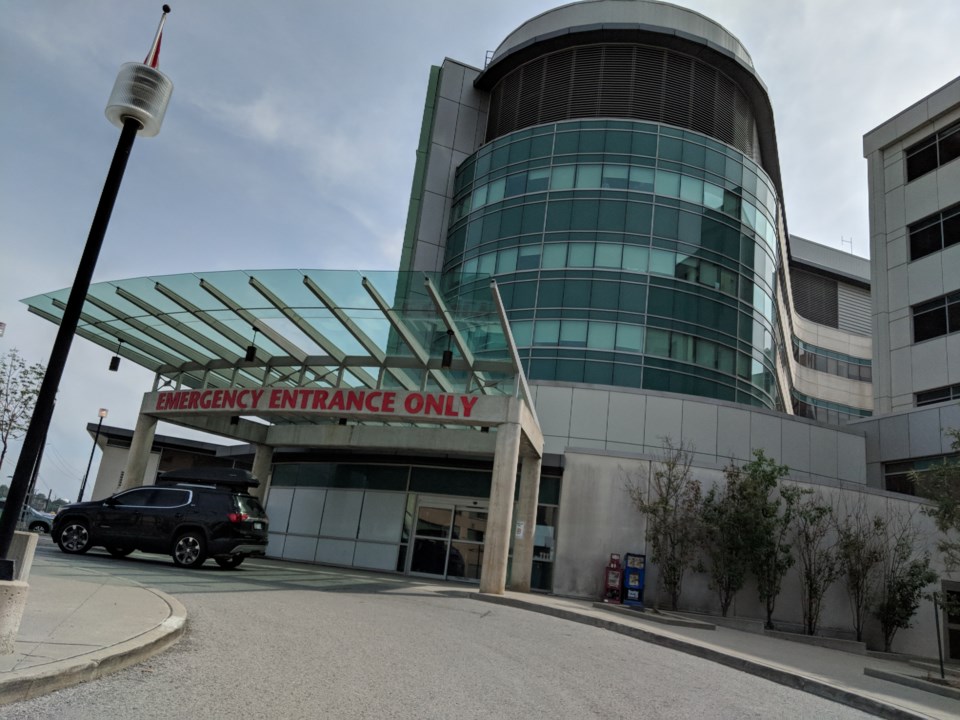Under Southlake Regional Health Centre's vaccination policy, staff and physicians who are not fully vaccinated were sent home or told not to report to work today if they have refused to comply with requirements for COVID-19 testing.
"Employees who have chosen not to get tested were notified that they are not able to report to work and, in order to return to work, they must either meet the testing requirements as per the policy or be fully vaccinated," confirmed Kathryn Perrier, manager of corporate communications, in an email statement.
The Newmarket hospital's policy — which it shares with 13 other Ontario central region hospitals — required that by Sept. 7 all employees, credentialed staff, contractors, students and volunteers provide proof of full vaccination or undergo twice-weekly rapid testing on their own time, as well as attend an education session.
While Perrier would not comment on the number of employees now on unpaid leave as a result of not complying with mandated testing, she said more than 90 per cent of Southlake's employees and physicians are fully vaccinated.
A provincial directive issued Aug. 17 stated public hospitals must establish a COVID-19 vaccination policy and that their employees must show proof of full vaccination, or written proof of a medical reason for not being vaccinated and proof of completion of an education session.
Under the policy issued by the 14 hospitals, employees who are not fully vaccinated by Oct. 30 could face termination with cause.
A Southlake registered nurse, who said she was speaking on behalf of a dozen unvaccinated nurses, called the policy no less than "genocide."
The RN, who requested anonymity for fear of being terminated, said the hospital had assured staff that their privacy would be respected, however the testing is being done "with zero privacy" among "our own doctors and our own nurses."
Because of the lack of privacy, staff know who has and has not been tested and this, she said, has led to bullying and criticism of unvaccinated nurses by vaccinated ones.
Only testing unvaccinated nurses is discriminatory, she added, as individuals who are vaccinated can also get and spread the virus.
"They're separating us, they're singling us out. If one person gets tested everyone should get tested."
The nurse — who said she has complied with the regular testing requirement but remains unvaccinated — said that she is not against vaccines in general, however, due to the speed at which the COVID-19 vaccine was approved and the many cases of side effects she has witnessed in patients, she is not confident it is safe.
Forcing her to comply or lose her job is a violation of her rights, she said.
"They (unvaccinated nurses) said they need more information — about the ingredients in the vaccine and things they're hearing on the news about the swab. They want to be informed, make an informed decision and the employer is just ignoring everybody, they're just continuing with their plan."
The nurse said that staff was encouraged to ask questions at the hospital's town hall meetings, but none of the submitted questions have been answered.
"We want freedom of choice. We are seeing an increasing amount of people that were otherwise healthy with potentially deadly side effects. We don't want this vaccine, it's not safe," the nurse said.
Both the Registered Nurses' Association of Ontario (RNAO) and Ontario Nurses Association (ONA) have issued statements encouraging their members to get vaccinated.
ONA recommends health-care workers get vaccinated "if they can, while recognizing that this is a decision that needs to be made by the health-care worker based on voluntary and informed consent" rather than through punishment or shame.
Doris Grinspun, RNAO CEO, said she doesn't understand the vaccine hesitancy among health-care workers, however, problems are arising due to the provincial government's refusal to make vaccines mandatory.
"This is a very difficult situation that health-care organizations have been put in by government not making vaccination mandatory. Patients need staff that is safe with them to provide care. They need to be fully vaccinated or bring a negative test before their shift ... our role is to protect patients. We've asked the government to do that because otherwise this is exactly what you're seeing. "
Meanwhile, the Southlake nurse said she lives paycheque to paycheque and hasn't decided what she'll do come Oct. 30 when she could face termination.
"I don't know how we're going to live. Everything's going to be taken away."
Editor's Note: This story was changed Sept. 16, 2021 to remove an incorrect statement that employees are required to pay for their rapid tests; it now correctly states employees are required to take the tests on their own time.



